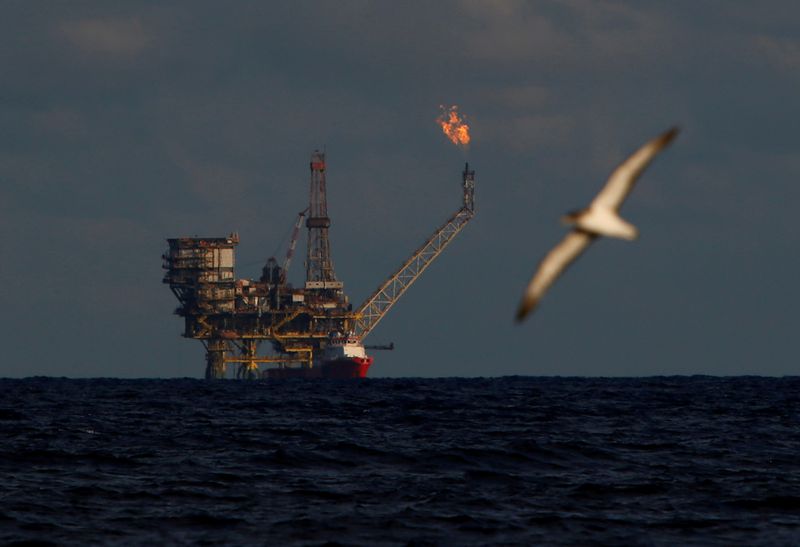By Koustav Samanta
SINGAPORE (Reuters) - Oil prices plunged to their lowest in more than a year on Friday, putting them on track for the biggest weekly decline in more than four years, as the rapid spread of the coronavirus stoked fears of slowing global demand.
Investors are increasingly worried the epidemic could turn into a pandemic, as the virus has spread beyond its epicentre in China to another 46 countries.
The most active Brent crude contract for May
West Texas Intermediate (WTI) crude futures (CLc1) fell $1.33, or 2.8%, to $45.76 per barrel. U.S. crude has fallen about 14% for the week, the biggest weekly decline since May 2011.
New infections of the coronavirus reported around the world were now surpassing those in mainland China, where more than 2,700 people have died. A further 57 deaths have been recorded in other countries.
"Oil prices are moving tangentially to news flows around the deluge of secondary cluster outbreaks," said Stephen Innes, chief market strategist at AxiCorp.
The international benchmark Brent crude, which fell about 2% on Thursday, has shed around 13% this week, putting it on track for its steepest weekly decline since mid-January 2016.
"Brent crude under $50 a barrel will be a nightmare scenario for OPEC and may well provoke a weekend response of some kind from the core grouping over the weekend, should Brent close under that level in New York tonight," said Jeffrey Halley, senior market analyst at brokerage OANDA.
Oil markets are hoping for steeper supply cuts by the Organization of the Petroleum Exporting Countries (OPEC) and its allies including Russia, who have said they will take a responsible approach in the wake of the virus outbreak.
The producer group known as OPEC+, which is currently reducing output by roughly 1.2 million barrels per day to support prices, is due to meet in Vienna on March 5-6.
"At least a 1 million bpd cut for the second quarter strikes us as necessary to merely moderate inventory builds, and we confess to underestimating demand destruction over the last several weeks," Jefferies analyst Jason Gammel said.

Saudi Arabia, which said it would continue to engage with Russia regarding oil policy going forward, is reducing crude supplies to China in March by at least 500,000 bbpd due to slower refinery demand.